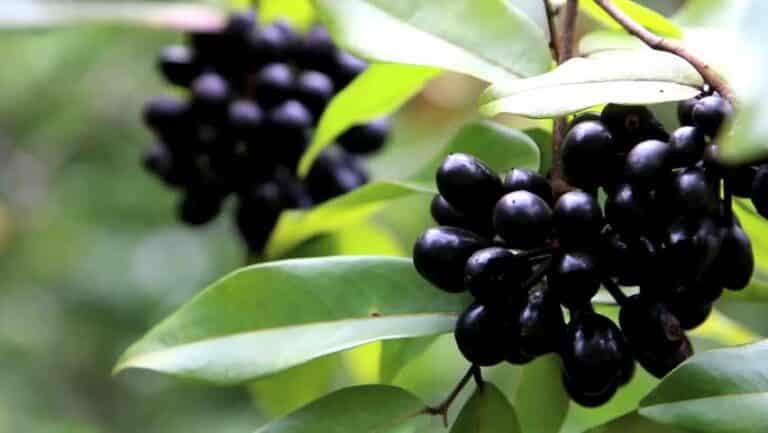About Jamun tree
- It is also known as jambolan, or black plum tree is a Myrtaceae plant family tropical tree.
- Its natural range includes the Indian sub-continent and South-East Asia.
- The genus Syzygium contains 1,193 recognised species, including jamun.
- Soil
- It can be grown on a wide range of soils.
- However, for high yield potential and good plant growth, deep loam and a well drained soil are needed.
- It can grow well under salinity and waterlogged conditions too.
- Climate
- It prefers to grow under tropical and subtropical climate.
- It is also found growing in lower ranges of the Himalayas up to an altitude of 1300 meters.
- It requires dry weather at the time of towering and fruit setting.
- In subtropical areas, early rain is considered to be beneficial for ripening of fruits and proper development of its size, colour and taste.
- Benefits: In Ayurveda the black plum is used to treat ailments such as stomach discomfort, arthritis, cardiac problems, flatulence, asthma, diarrhoea, and stomach spasms.
Highlights of the genome sequencing
- The aim of this research was to gain new functional and evolutionary insights from the jamun genome, which could be responsible for the wide range of pharmacological properties of this species conferred by the bioactive compounds that act as nutraceutical agents in modern medicine.
- The jamun genome has a higher number of coding genes resulting from gene duplication or neopolyploidy events, compared to the other two sequenced species from this genus.
- The analyses revealed the key genes involved in facilitating the adaptive evolution of Jamun.
- Among these, 14 genes allow for the biosynthesis of terpenoids, which are a diverse class of metabolites responsible for plant defence responses. They also contribute significantly to antioxidant and anti-inflammatory properties.
- Alkaloids, another type of metabolite, are also found abundantly in different plant parts and offer curative properties against many diseases.
- This combination of alkaloids and flavonoids gives the plant its anti-arthritic properties.
- To explain the anti-diabetic properties of this plant, the researchers discovered the presence of glucosides, another class of metabolites that prevent the conversion of starch into sugar.
Q1) What is Alkaloid?
These are any of a class of naturally occurring organic nitrogen-containing bases. Alkaloids have diverse and important physiological effects on humans and other animals. Well-known alkaloids include morphine, strychnine, quinine, ephedrine, and nicotine.
Source: IISER-Bhopal completes genome sequencing of jamun tree
Last updated on February, 2026
→ UPSC Notification 2026 is now out on the official website at upsconline.nic.in.
→ UPSC IFoS Notification 2026 is now out on the official website at upsconline.nic.in.
→ UPSC Calendar 2026 has been released.
→ UPSC Final Result 2025 is expected to be released in the first week of March 2026.
→ Check out the latest UPSC Syllabus 2026 here.
→ Join Vajiram & Ravi’s Interview Guidance Programme for expert help to crack your final UPSC stage.
→ UPSC Mains Result 2025 is now out.
→ UPSC Prelims 2026 will be conducted on 24th May, 2026 & UPSC Mains 2026 will be conducted on 21st August 2026.
→ The UPSC Selection Process is of 3 stages-Prelims, Mains and Interview.
→ Prepare effectively with Vajiram & Ravi’s UPSC Prelims Test Series 2026 featuring full-length mock tests, detailed solutions, and performance analysis.
→ Enroll in Vajiram & Ravi’s UPSC Mains Test Series 2026 for structured answer writing practice, expert evaluation, and exam-oriented feedback.
→ Join Vajiram & Ravi’s Best UPSC Mentorship Program for personalized guidance, strategy planning, and one-to-one support from experienced mentors.
→ Check UPSC Marksheet 2024 Here.
→ UPSC Toppers List 2024 is released now. Shakti Dubey is UPSC AIR 1 2024 Topper.
→ Also check Best UPSC Coaching in India


















